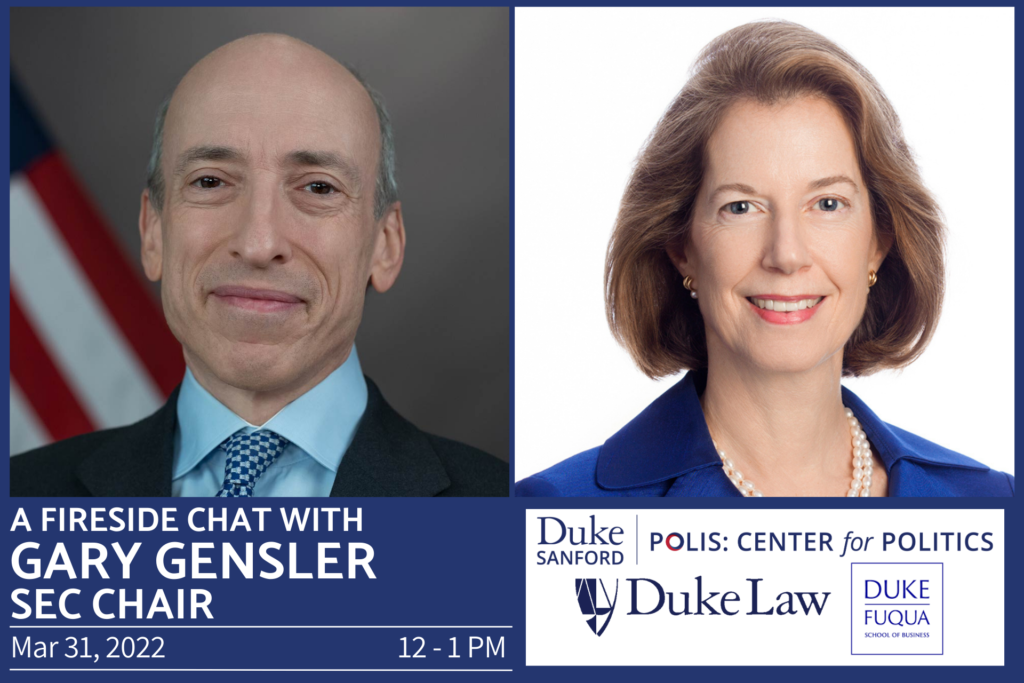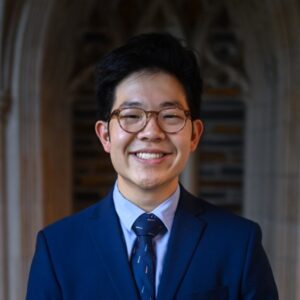
A Fireside Chat with SEC Chair Gary Gensler
March 31, 2022
12:00 pm - 1:00 pm
Location
Share this event

Sanford Student Voices: Closeup on the U.S. Regulatory Landscape
Gary Gensler, the current chair of the U.S. Securities and Exchange Commission (SEC), recently joined Polis’s Distinguished Fellow Ambassador Miriam Sapiro to discuss his tenure heading one of America’s biggest regulatory agencies.

Gensler came to the SEC after extensive experience both in the private sector and in the federal government. He spent 18 years at Goldman Sachs working in mergers and acquisitions and fixed income and currency trading, but left in 1997 to serve as the Assistant Secretary of the Treasury for Financial Institutions for the Clinton administration. Afterward, he helped write the Sarbanes-Oxley Act, which tightened accounting standards for corporations in the wake of major scandals like Enron and WorldCom. In 2009, President Obama nominated him to chair the Commodities Future Trading Commission (CFTC), where he helped create new regulations for financial derivatives in the wake of the 2008 financial crisis.
Many students, myself included, were largely unfamiliar with the scope of Gensler’s work. In fact, Gensler opened his talk by recognizing a major challenge of his job: For the average American, the U.S.’s regulatory landscape – dominated by “alphabet soup” organizations like the SEC, OCC, FINRA, and the CFTC – is impossible to understand. (After all, just 56% of Americans can even name the three branches of government.) Nonetheless, he drove home the message that while his work may not be head-turning, market regulators play an important role in guaranteeing the average citizen opportunities for economic prosperity. They protect investors and households from fraud and manipulation and ensure that market transactions are completed smoothly. Gensler repeatedly referenced the “basic bargain” as one of America’s core ideals: If you work hard and obey the rules, you should have the opportunity to flourish and become economically prosperous.
Click here to read his full reflection.

